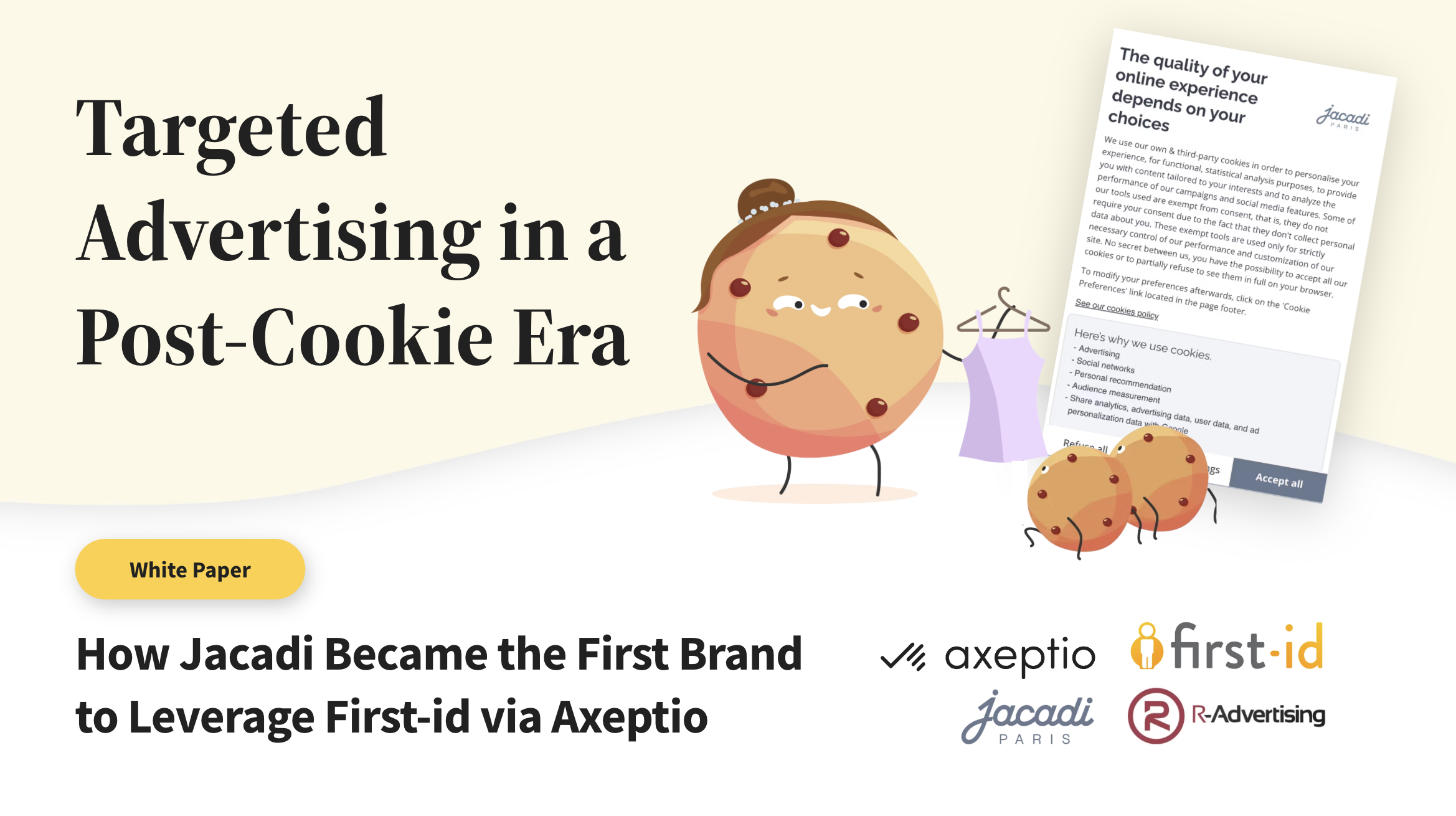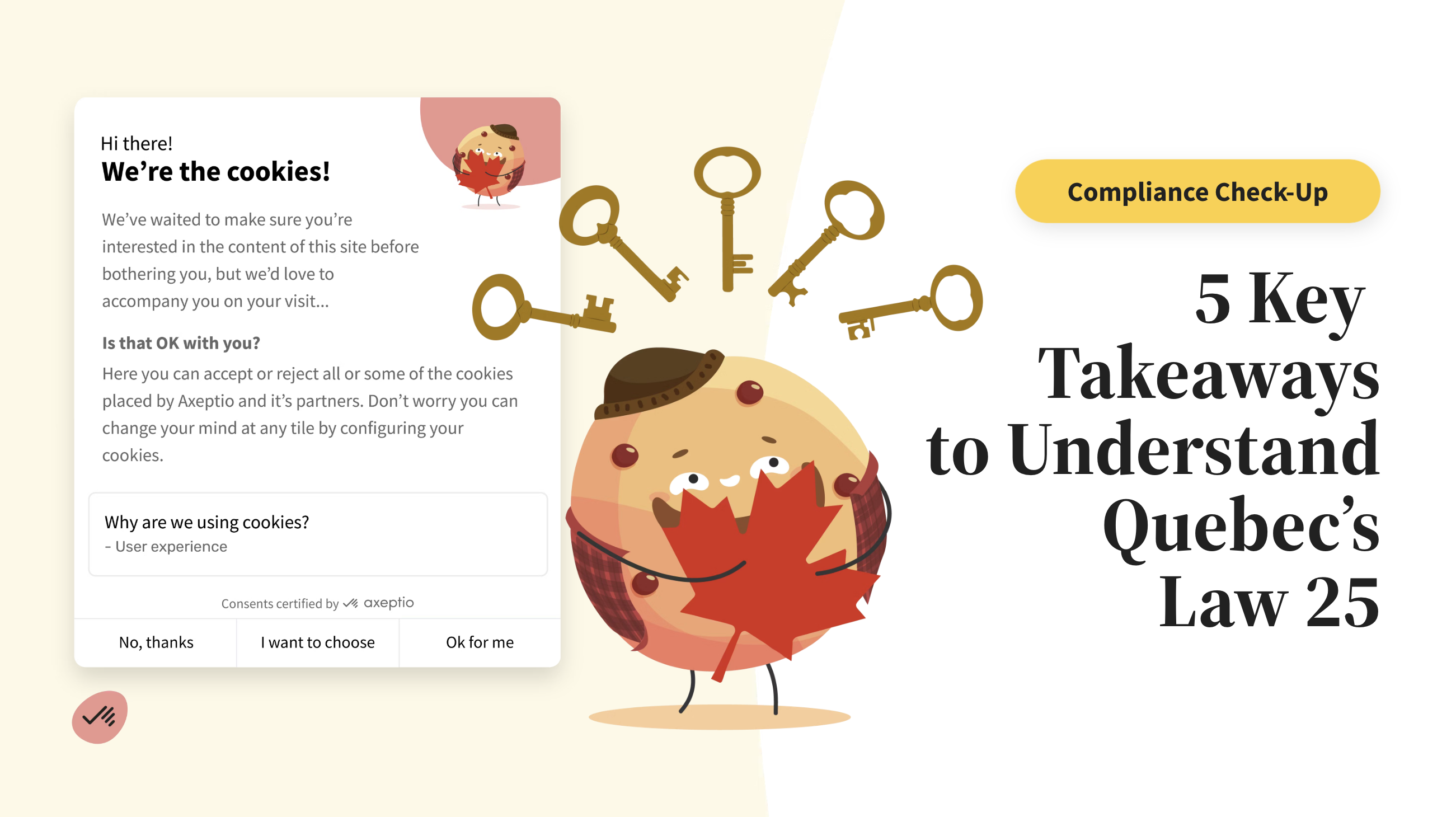At Axeptio, we’ve never been fans of shortcuts—especially when it comes to consent. Our mission has always been to redefine consent management by making it simple, transparent, and fully compliant—without sacrificing user experience or brand identity. We believe trust isn’t built on technical tricks but on clarity, choice, and real compliance.
Yet, one question keeps coming up: Why don’t we offer cookie blocking?
In this blog article, Romain Bessuges-Meusy has a strong opinion on the matter—one that challenges an increasingly common practice in the industry. While cookie blocking may seem like an easy fix, it’s actually a misleading and ineffective approach to data privacy. True compliance isn’t just about stopping cookies; it’s about understanding and managing data processing as a whole.

Consent is About Data Processing, Not Just Cookies
At Axeptio, we’re often asked about our stance on cookie management—specifically, why don’t we offer cookie blocking? At first glance, blocking cookies might seem like a straightforward way to enforce compliance. In reality, it’s a superficial fix that overlooks the true nature of data privacy regulations. Worse, it creates a false sense of security, putting both businesses and users at risk.
The real issue isn’t cookies themselves—they’re just a storage mechanism, inherently neutral. What matters is how they’re used. Whether for tracking, profiling, or analytics, it’s the data processing behind them that requires consent. And that’s not just about cookies. Regulations like the e-Privacy Directive (article 5.3) apply to any technology capable of storing or accessing information on a user’s device—including fingerprinting, local storage, and server-side tracking. These methods evolve rapidly, yet they remain subject to the same compliance obligations.
Consent isn't merely a checkbox exercise limited to cookies—it’s about governing all data collection activities at their source. That means preventing scripts, APIs, and tracking pixels from firing before consent is obtained. Blocking only at the cookie level is like locking the door after the intruder has already entered—it’s simply too late.
Companies offering cookie blocking as the ultimate compliance tool have misunderstood or are oversimplifying their regulatory responsibilities, potentially misleading their customers. A true compliance strategy requires control over the entire data processing pipeline, ensuring businesses respect privacy regulations from the very first point of interaction.
The False Promise of Cookie Blocking
For many businesses navigating the maze of digital compliance, the idea of cookie blocking can seem like an easy fix. If you’ve ever taken over a company’s tracking setup—perhaps inheriting a tangled mess of tags, scripts, and pixels buried in Google Tag Manager—you know how daunting it can be to untangle what’s happening. A one-click "block all cookies" function sounds like a magic tool, offering a quick way to hit the compliance checkbox without wading through years of undocumented configurations.
But here’s the catch: cookie blocking is a mirage. It creates the illusion of compliance without delivering real data protection and leaves companies exposed in three critical ways:
1. A False Sense of Security
Many assume that blocking cookies means stopping all unauthorized tracking. In reality, scripts and trackers often continue to fire, collecting data before a cookie is ever dropped. The rules and regulations don’t really apply to cookies per se —they regulate the processing of personal data, whether it’s stored via cookies, fingerprinting, or server-side methods. Cookie blocking, when used as a shortcut to compliance, risks misleading both businesses and users into a false sense of legal safety.
2. A Technically Fragile Solution
Cookie blocking works by overriding native browser behaviors. This can introduce instability, errors, and unintended side effects, from broken functionalities to slow-loading pages. Worse still, these workarounds can quickly become obsolete as browsers evolve, forcing constant maintenance. No serious solution should rely on a compliance method that is both unreliable and at odds with the way web technologies are designed to function.
3. Easily Bypassed, Easily Misled
Many cookie blocking solutions operate on naming conventions—blacklisting cookies based on their names rather than their actual function. But renaming a cookie is easy. Vendors can simply rebrand their tracking cookies to bypass these filters, leaving companies under the illusion that data collection has stopped when, in reality, it continues unchecked. This makes cookie blocking not just ineffective, but actively misleading.
Ultimately, compliance isn’t about flipping a switch to block storage mechanisms—it’s about enforcing meaningful consent and managing data flows responsibly. Cookie blocking may seem like an appealing shortcut, but in practice, it’s a compliance placebo that fails to address the complexities of modern data tracking.

Axeptio's Approach: Empowering Real Consent, Building Genuine Trust & Compliance
At Axeptio, we believe consent management shouldn't be a burden—neither for users nor for businesses. The web is meant to be a space where people navigate, discover, and engage without facing an endless series of confusing legal roadblocks. Yet, too often, compliance is treated as a mere obstacle, a bureaucratic checkbox that frustrates users rather than empowering them. That’s precisely the problem we set out to solve. We don’t do compliance for compliance’s sake. We redefine it as an opportunity—to build trust, enhance transparency, and offer users the freedom to make meaningful choices about their data, without friction.
This starts with knowledge. Real consent isn’t just about saying yes or no—it’s about understanding what’s at stake. Who is collecting data? For what purpose? What are the implications of accepting or refusing? Our Consent Management Platform (CMP) is designed not just to display legal jargon, but to educate, using clear, engaging, and human-centric language. Indeed, Axeptio turns consent into an experience—an intuitive, well-designed moment where users can make informed decisions without frustration.
It’s also about respecting choices. Many so-called compliance solutions undermine the very thing they claim to protect. Some nudge users toward consent with deceptive design patterns. Others block cookies but fail to prevent deeper forms of tracking. At Axeptio, we take a fundamentally different stance: we don’t manipulate, we don’t mislead, and we don’t take shortcuts. Our mission is to ensure that when a user makes a choice, that choice is respected, not bypassed by technical loopholes or hidden workarounds.
In a nutshell, Axeptio knows how to do it, but we don't want to. We stand for transparency, informed decisions, and authentic consent.
Because real consent isn't just compliance—it's respect.
Do you need help with compliance?






